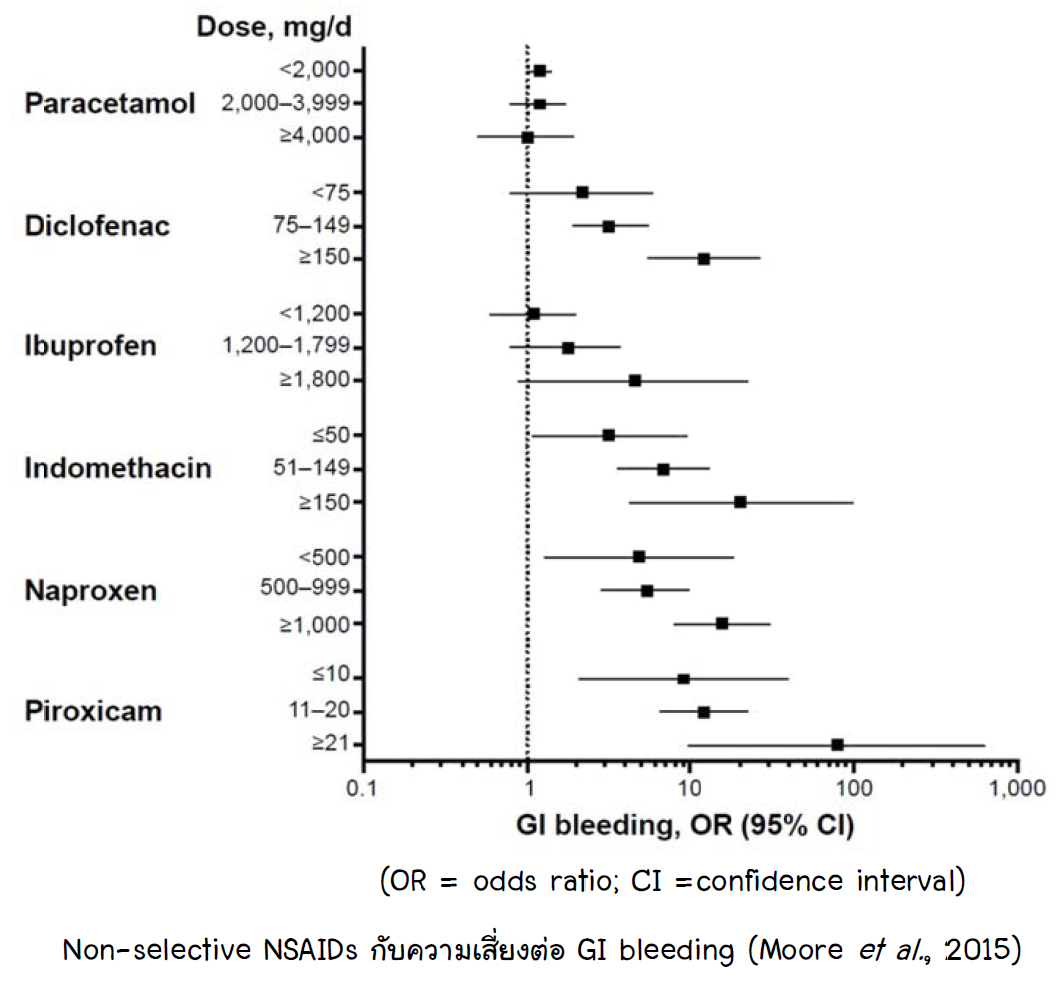Question: Ibuprofen is NSAIDs
with the lowest risk for GI bleeding, is it true or not?
Answer:
NSAIDs (or non-steroidal anti-inflammatory drugs), which
usually mean the conventional NSAIDs or non-selective NSAIDs that inhibit
prostaglandin by inhibiting cyclooxygenase enzyme (COX), both COX-1 and COX-2.
Drugs in this group have pain relief, can reduce fever
and reduce inflammation. So they usually used to relieve pain and reduce
inflammation in arthritis and more.
Inhibiting COX-1 cause irritation in the stomach and
cause bleeding in the digestive tract, so adverse drug reaction is
gastro-intestinal bleeding (GI bleeding)
The adverse reactions occurred more or less is based on
the type of drugs that affect COX-1 more or less.
It also depends on the dose and age of the patient.
The adverse reactions occurred more or less is based on
the type of drugs that affect COX-1 more or less. It also depends on the dose
and age of the patient. (elderly often have more adverse drug reaction).
NSAIDs not only cause adverse reactions on the stomach
but also affect the intestine.
Non-selective NSAIDs (such as Ibuprofen, diclofenac,
naproxen, indomethacin and piroxicam) and the risk of GI bleeding, compared
with the paracetamol.
From the above image.
Ibuprofen 1200 mg / day had the lowest risk
of GI bleeding, compared with paracetamol. But ibuprofen ≥1,200 mg / will has the
risk of GI bleeding more than paracetamol.
The other drugs mentioned above, even in low
doses, namely diclofenac <75 mg / day, indomethacin ≤50 mg / day, naproxen
<500 mg / day and piroxicam ≤10 mg / day. These increase the risk of GI
bleeding a lot, especially piroxicam (see image).
References:
(1) Moore N, Pollack C, Butkerait P.
Adverse drug reactions and drug-drug interactions with over-the-counter NSAIDs.
Ther Clin Risk Manag 2015; 11: 1061-75; (2) Scarpignato C, Lanas A, Blandizzi
C, Lems WF, Hermann M, Hunt RH, et al. Safe prescribing of non-steroidal
anti-inflammatory drugs in patients with osteoarthritis - an expert consensus
addressing benefits as well as gastrointestinal and cardiovascular risks. BMC
Med 2015; 13: 55. doi: 10.1186 / s12916-015-0285-8.

No comments:
Post a Comment